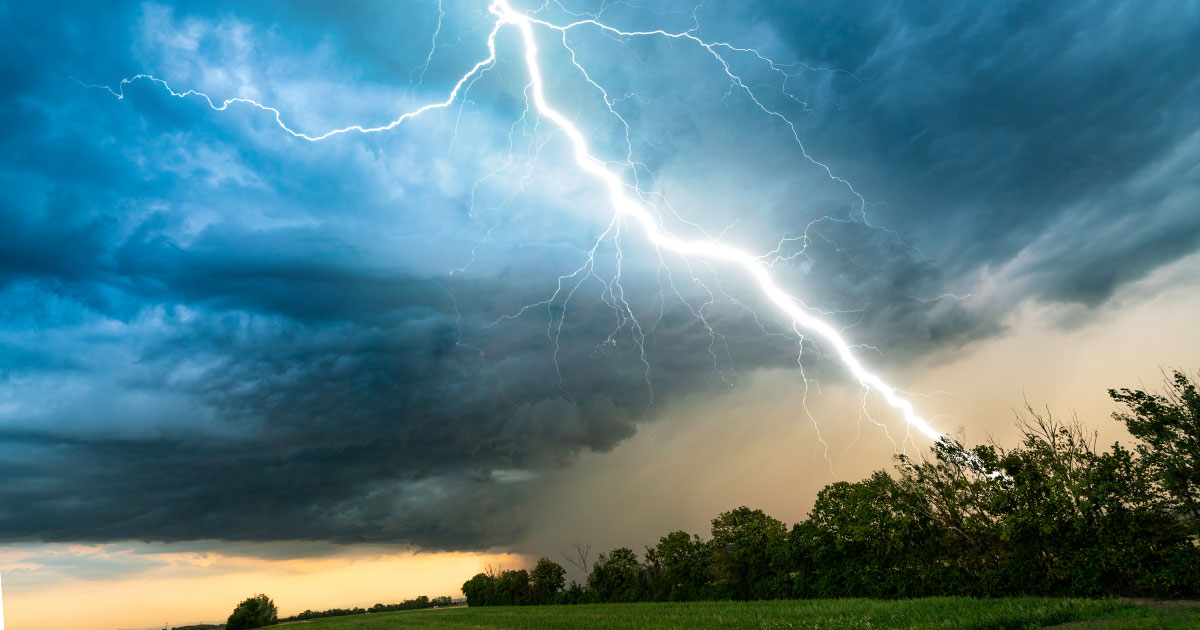
April 20, 2022 – Are you ready? April 4-8 was Tornado and Severe Weather Awareness Week in Wisconsin – and here are a few quick tips to help you recover from a natural disaster.
First – before we go further – here’s what to do when you have the time to proactively plan for a disaster. Start with these three things:
But if disaster has struck and your law practice is impacted, here are the first five steps to take to protect your clients and your firm:
#1: Protect Original Documents and Client Property Held in Trust
When law firms are facing flash floods and may not have access to their law firms for several days or even weeks, the first priority would be removing bearer instruments, trust funds that have not been deposited for safekeeping, and any original documents (wills, trusts, settlement agreements, and etc.).
Wisconsin Formal Ethics Opinion EF-17-01: Retention and Destruction of Closed Client Files discusses the “specific responsibility to hold client property in trust under SCR 20:1.15, and important documents or other materials given to the lawyer by the client.”
A
system for running a paperless office or utilizing file naming conventions can help identify physical files that may contain property being held in trust or other original documents. Another proactive option is to implement procedures where original documents are returned to the client when the matter has concluded. Otherwise, lawyers may be forced to remove all of their physical files in the event a disaster strikes.
#2: Communicate with Your Clients
Law firms that primarily rely on landline phones for communications with their clients run the risk of being without communication for several days in the event of a natural disaster. Clients may not know how to reach a law firm whose phone lines are busy or ring without an answer.
 Christopher C. Shattuck, Univ. of La Verne College of Law 2009, M.B.A. U.W.-Oshkosh 2015, is manager of
Practice411™, the State Bar’s law practice assistance program. If you have questions about the business aspects of your practice, call (800) 957-4670.
Christopher C. Shattuck, Univ. of La Verne College of Law 2009, M.B.A. U.W.-Oshkosh 2015, is manager of
Practice411™, the State Bar’s law practice assistance program. If you have questions about the business aspects of your practice, call (800) 957-4670.
Proactively, a law firm could plan for a disaster by including a Voice over Internet Protocol (VoIP) phone number in the engagement letter that can be utilized by clients in situations where the law firm is impacted by a disaster.
If there is no proactive plan in place,
lawyers can quickly obtain and set up a VoIP free phone number through services, such as
Google Voice, and provide that number to clients. So long as the lawyer has internet access in their remote location, they can answer calls with the VoIP.
In addition to utilizing a VoIP, law firms should consider
updating their email accounts with out-of-office messages. The automatic reply could relay ways the clients can contact their legal counsel (such as through a VoIP number), updates on when the firm expects to return to its physical office location, and information confirming that the law firm will continue to work on cases and meet key deadlines.
#3: Meet Key Deadlines
Law firms that exclusively rely upon paper calendar systems for keeping track of deadlines and other important dates run the risk of committing malpractice in situations when their paper calendar and deadline dates are destroyed in a disaster.
Cloud-based law practice management software provides the ability to access documents, billing, deadline dates, and contact information to help communicate with clients and manage law firm operations from anywhere there is an internet connection.
If deadlines are not available through case management software, lawyers may have to rely upon deadlines stored in their
Outlook or
Google calendars. Attorneys may also be able to find key deadlines in
filed cases by searching for cases using their bar number in the
Advanced Search field for cases in the circuit court or by searching in the
Attorney Name field for cases pending before the Wisconsin Supreme Court and Court of Appeals.
Another option in circuit court cases is to utilize the
Attorney calendar search feature.
#4: When to Withdraw from Representation
ABA Formal Op. 482: Ethical Obligations Related to Disasters cautions that “[l]awyers whose circumstances following a disaster render them unable to fulfill their ethical responsibilities to clients may be required to withdraw from those representations.”
ABA Model Rule 1.16(a)(1), which is identical to SCR 20:1.16(a)(1), "requires the lawyer to withdraw if ‘the representation will result in violation of the Rules of Professional Conduct.’
Model Rule 1.16(a)(2), which is also identical to SCR 20:1.16(a)(2), requires a lawyer to withdraw if ‘the lawyer’s physical or mental condition materially impairs the lawyer’s ability to represent the client.’”1
Regardless of the circumstances, if a lawyer is unable to continue representing a client after a disaster, the lawyer should seek to withdraw from representation.
Who To Call When Disaster Strikes
If disaster strikes and you are in need of
confidential assistance, help from the State Bar is only a phone call or click away:
#5: Set Up to Work Remotely
Wisconsin Formal Ethics Opinion EF-21-02: Working remotely covers the duties owed to clients when working remotely, including competence, diligence, communication, confidentiality, responsibilities of partners, managers, and supervisory lawyers, responsibilities regarding nonlawyer assistance, the unauthorized practice of law, and multijurisdictional practice of law.
The 2020
WisBar News article “Working Remotely: Practical & Ethical Tips and Resources,” provides suggestions for tools that can help safeguard information being transmitted over the internet. Further explanations of the tools, resources, and ethical considerations can be found in
our video highlighting the ethics opinion.
Although all of the ethical considerations are important, when navigating a disaster, the focus will likely be on ensuring you can communicate with your clients, opposing counsel, and the court regarding important deadlines.
A secondary concern when working remotely is to ensure those communications are kept confidential and not overhead by others. If confidentiality cannot be maintained in available remote work locations, attorneys should consider renting private day office spaces from coworking, managed executive, or other office spaces that may be available in the surrounding community.
Conclusion: Proactive Planning Is Best
As a best practice, attorneys should proactively plan for a disaster by implementing both a
business continuity and
disaster recovery plan.
When unexpected disasters strike and no plans are in place, attorneys should focus on protecting trust or original documents, notifying their clients about the status of their matters, and ensuring key deadlines are met.
Confidential help is also available through the State Bar of Wisconsin to answer questions regarding ethics, practice management, or lawyer wellness. If you are impacted by a disaster, be sure to use the resources that can help you return more quickly to normal law firm operations.
Endnotes
1See Aviva Meridian Kaiser,
Disasters and a Lawyer's Ethical Obligations, 92 Wis. Law. (Jan. 2019).
